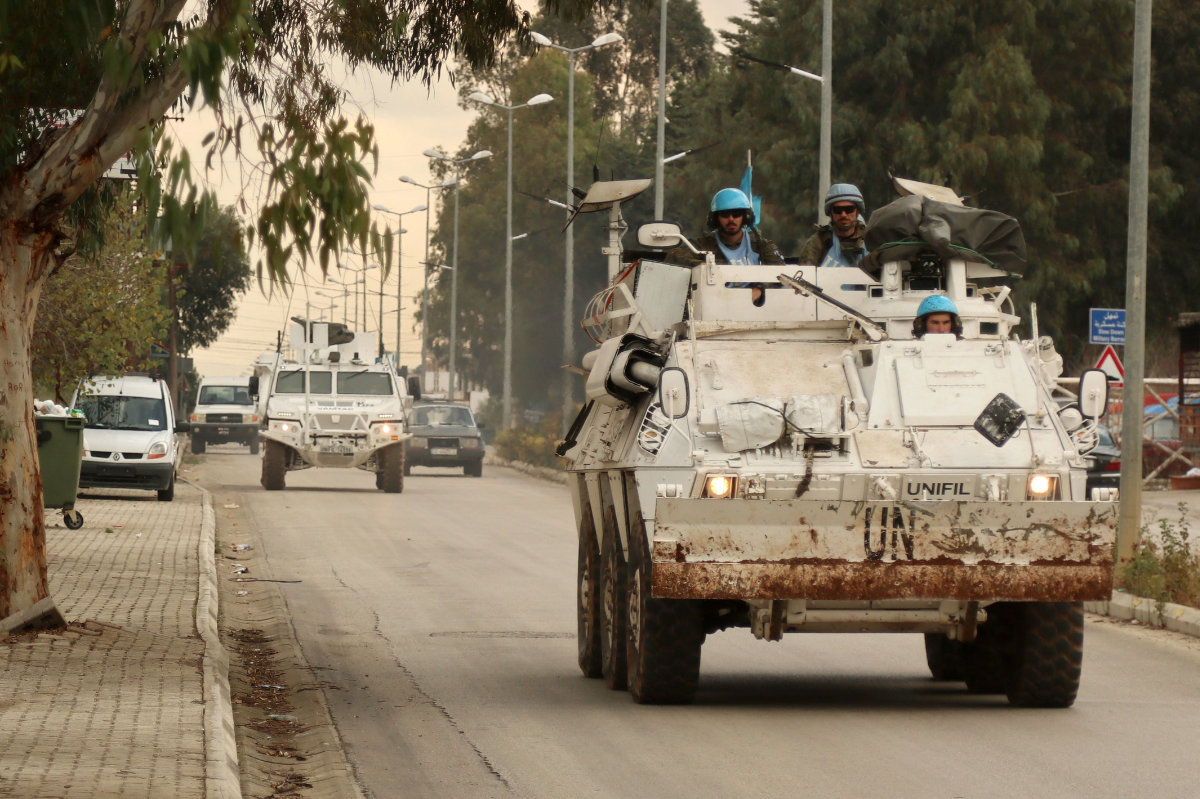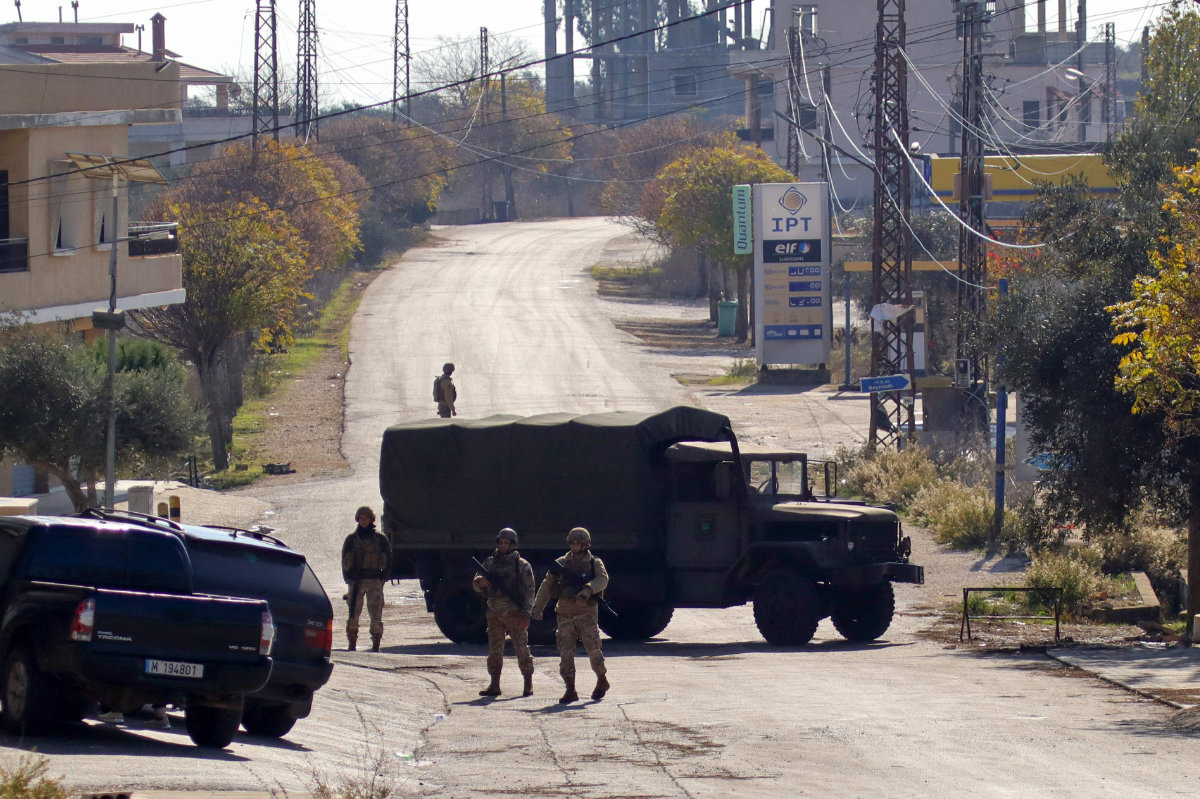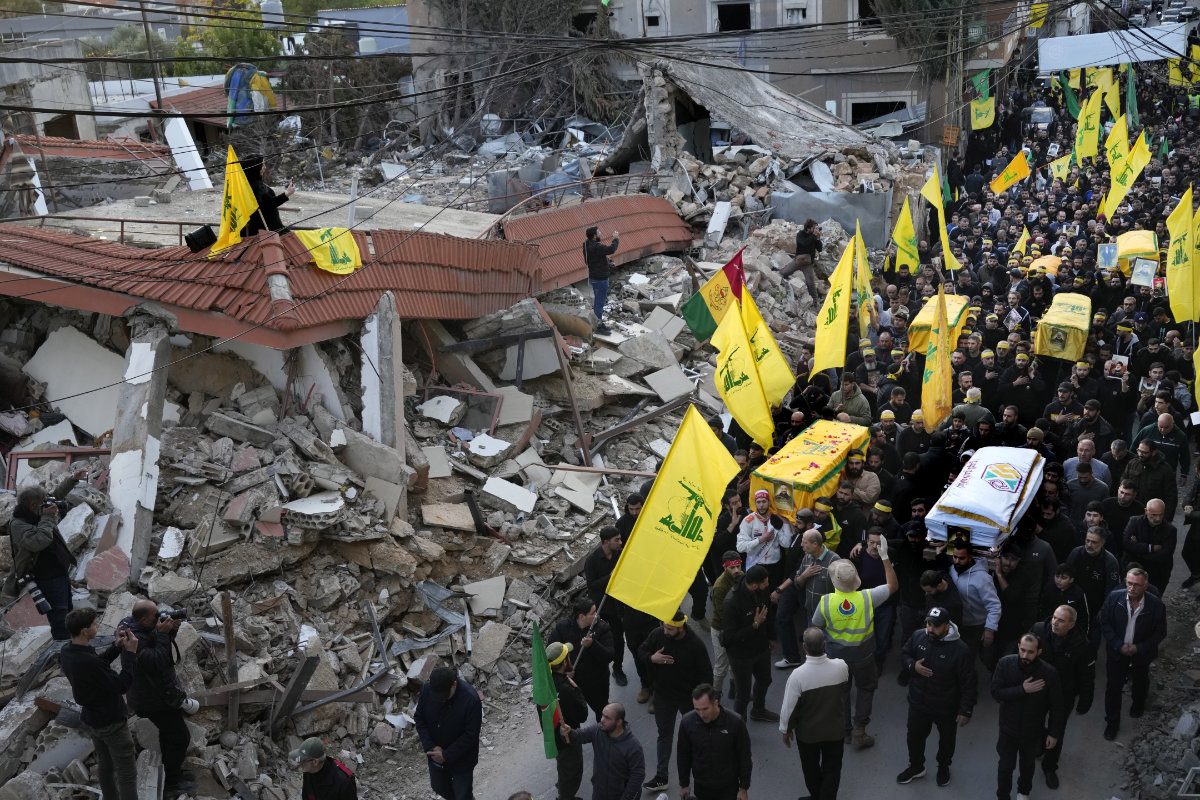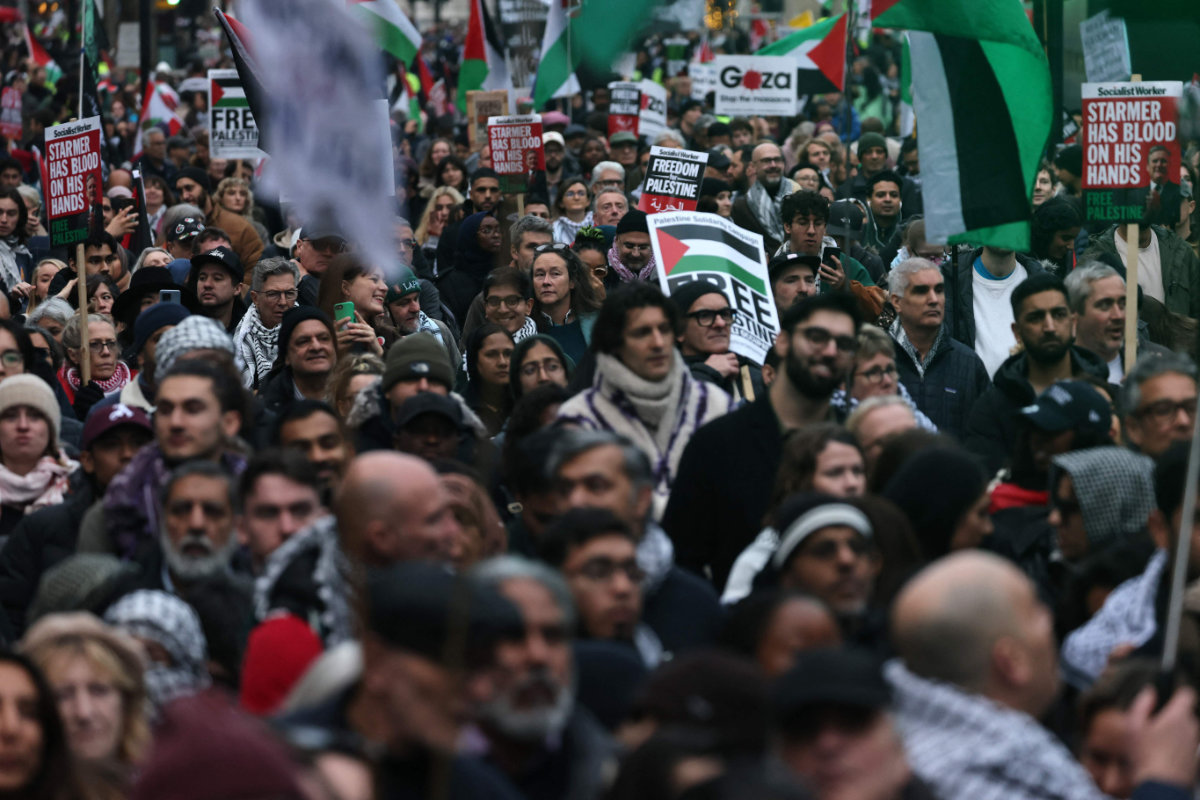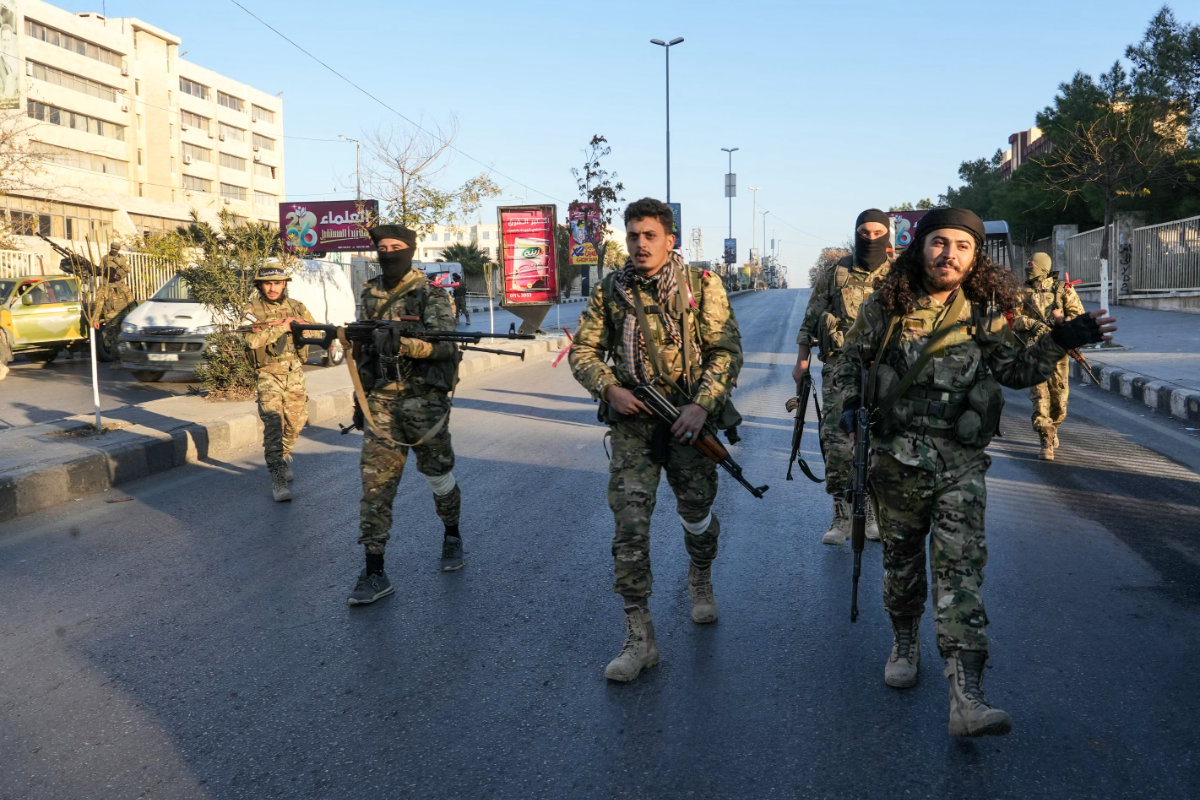GAZA: Israeli Defense Minister Yoav Gallant has a poster hanging on a wall of his office in Tel Aviv, in the wake of the Oct. 7 attack on Israel by Hamas. It shows mugshots of hundreds of the Palestinian militant group’s commanders arranged in a pyramid.
At the bottom are Hamas’ junior field commanders. At the top is its high command, including Mohammed Deif, the shadowy mastermind of last month’s assault.
The poster has been re-printed many times after Israel invaded Gaza in retaliation for Oct. 7: the faces of dead commanders marked with a cross.
But the three men topping Israel’s hit-list remain at large: Deif, the head of Hamas’ military wing, the Izz el-Deen Al-Qassam Brigades; his second in command, Marwan Issa; and Hamas’ leader in Gaza, Yahya Sinwar.
Hostilities resumed in Gaza on Friday after a seven-day truce brokered by Qatar collapsed. Reuters spoke to four sources in the region, familiar with Israeli thinking, who said that Israel’s offensive in Gaza was unlikely to stop until those three top Hamas commanders are dead or captured.
The seven-week-old military campaign has killed more than 15,000 people, according to Gaza health officials, stirring international outcry.
The 61-year-old Sinwar, as well as Deif and Issa, both 58, form a secretive three-man military council atop Hamas that planned and executed the Oct. 7 attack. Some 1,200 people were killed and around 240 taken hostage in that assault, the bloodiest in Israel’s 75-year history.
The three leaders are directing Hamas’ military operations and led negotiations for a prisoner-hostage swaps, possibly from bunkers beneath Gaza, three Hamas sources say.
Killing or capturing the three men will likely be a long and arduous task but might signal that Israel was close to shifting from all-out war to less intense counter insurgency operations, according to three of the senior regional sources. That does not mean that Israel’s fight against Hamas would stop.
Officials, including Prime Minister Benjamin Netanyahu, have said Israel’s objectives are the destruction of Hamas’ military and governmental capabilities, bringing the hostages back, and ensuring that the area around Gaza will never be threatened by a repeat of the Oct. 7 attack. To achieve those goals, eliminating the leadership of Hamas will be essential.
“They are living on borrowed time,” Gallant told a news conference last week, indicating that Israeli intelligence agency Mossad would hunt down the militant group’s leadership anywhere in the world. The Israeli government did not respond to a request for comment.
Two military experts said that killing Sinwar, Deif and Issa would allow Israel to claim an important symbolic victory. But achieving even that goal would be long and costly, with no guarantee of success.
Backed by drones and aircraft, Israeli troops have swept through less populated northern and western parts of Gaza but the hardest, and most destructive, phase of the fighting may lie ahead, military experts said.
Israeli troops have not pushed deep into Gaza City, stormed the maze of tunnels where Hamas’ command is believed to be located, or invaded the enclave’s densely populated south, they added. Some of those tunnels are believed to be around 80 meters deep, making them difficult to destroy from the air.
Michael Eisenstadt, director of the Military and Security Studies Program at the Washington Institute for Near East Policy, said it was probably unclear to all sides, including Hamas, exactly how many of its fighters had been killed.
“If (Israel) could say we’ve killed Sinwar, we’ve killed Marwan Issa, we’ve killed Mohammed Deif, that’s a very clear, symbolic and substantive achievement,” Eisenstadt said, adding that Israel faced a dilemma.
“What if they can’t get the guys? Do they keep fighting until they get them? And what if what if they just prove elusive?“
A MORE ATTAINABLE GOAL
The Israeli military says it has destroyed around 400 tunnel shafts in northern Gaza, but that is only a small part of the network Hamas has built up over the years. At least 70 Israeli soldiers have been killed in the Gaza operation, and some 392 in total, including the Oct. 7 attacks, the Israel Defense Forces (IDF) has said.
A military officer, who briefed reporters on condition of anonymity, estimated roughly around 5,000 Hamas fighters had been killed – equivalent to roughly one fifth of its overall strength. Six battalions – numbering around 1,000 men each — had been significantly degraded, the officer said.
Osama Hamdan, a Lebanon-based Hamas leader, said the casualty figures were false and “Israeli propaganda” to cover its lack of military success.
One Hamas insider in Gaza, reached by phone, said that destroying the group as a military force would mean house to house combat and fighting in the warren of tunnels beneath the enclave, which would take a long time.
“If we talk about a year, we will be optimistic,” he said, adding that the Israeli death toll would rise.
President Joe Biden’s administration sees eliminating Hamas’ leadership as a far more attainable goal for Israel than the country’s stated objective of eliminating Hamas entirely, three US officials told Reuters.
While staunchly supportive of Israel, its closest ally in the Middle East, US officials worry that an open-ended conflict driven by Israel’s hope of destroying Hamas entirely would cause a heavy civilian death toll in Gaza and prolong the risk of a regional war.
The United States learned that lesson over years of battling Al-Qaeda, Daesh and other groups during a two-decade-long global war on terrorism.
Iran-backed militants, who blame the United States for Israel’s bombings in Gaza, are already targeting US troops in Iraq and Syria in wave after wave of attacks. One of the attacks last week injured eight US troops.
EXISTENTIAL THREAT
The shock and fear in Israel engendered by Hamas’ Oct. 7 attack may make it difficult to de-escalate the conflict.
Kobi Michael, a former head of the Palestinian desk at Israel’s Ministry for Strategic Affairs, which counters negative narratives about Israel overseas, said there is strong popular support for the war to continue as Hamas is perceived as part of a broad Iran-backed axis that poses a direct threat to the nation’s survival.
Capturing Sinwar would be an important victory but not necessarily the ultimate one, Michael said.
“Israeli society perceives itself under an existential threat and the options it sees before it are two only: To be or not to be,” he said.
The objective of the war remains to dismantle Hamas’ military and government capabilities, Michael said, which could involve a turbulent period in Gaza after the war. And the greater long-term challenge was to remove the popular appeal to Palestinians of Hamas’ fierce opposition to Israel using education and outreach, he said.
Israel regularly announces the deaths of senior Hamas battalion commanders. An Israeli military officer, who spoke to reporters on condition of anonymity, said the IDF viewed the elimination of such combat-level commanders as essential to dismantling Hamas’ military capabilities.
FAILED ASSASINATIONS
The three Hamas leaders have all escaped numerous Israeli operations to kill them. Deif in particular lives in the shadows after escaping seven assassination attempts before 2021, which cost him an eye and left him with a serious leg injury.
An Israeli air strike in 2014 killed his wife, his three-year-old daughter and seven-month-old son.
Speculation by Israeli and Palestinian sources is that the three men are hiding in the tunnels under the enclave but five sources close to their thinking say they could be anywhere within Gaza.
Sinwar, who unlike the elusive Deif and Issa has often appeared in the past at public rallies, is no longer using any electronic devices for fear the Israelis could track the signal, Hamas sources said.
Issa, known as the ‘Shadow Man’, is perhaps the least well known of the three but has been involved in many of Hamas’ major decisions of recent years, and would replace either of the two other men if they are killed or captured, Hamas sources said.
All three men were born into refugee families that had fled or been expelled in 1948 from areas in the newly created Israeli state.
And all three men have spent years in Israeli prisons. Sinwar served 22 years after being jailed in 1988 for the abduction and killing of two Israeli soldiers and the murder of four Palestinian collaborators.
He was the most senior of 1,027 Palestinian prisoners that Israel freed in 2011 in exchange for one of its soldiers, Gilad Shalit, captured by Hamas in a cross-border raid five years earlier.
Like Deif, Issa’s facial features were unknown to the public until 2011 when he appeared in a group photo taken during the Shalit prisoner’s exchange, which he helped to organize.
Gerhard Conrad, a German Intelligence Agency mediator (BND) from 2009 to 2011, was among the few to have met Issa while negotiating Shalit’s prisoner swap.
“He was very meticulous and careful analyst: that’s my impression of him. He knew the files by heart,” Conrad told Al Jazeera television.
Israel has killed Hamas’ leaders in the past, including the group’s founder Sheikh Ahmed Yassin and its former leader Abdel-Aziz Al-Rantisi, assassinated in a 2004 air strike. New commanders rose to fill their ranks.
“Israel has killed Sheikh Yassin, Rantissi and others but Hamas is not over,” said Hamdan, the Lebanon-based member of the group’s politburo. “Anything might happen in this battle.”












